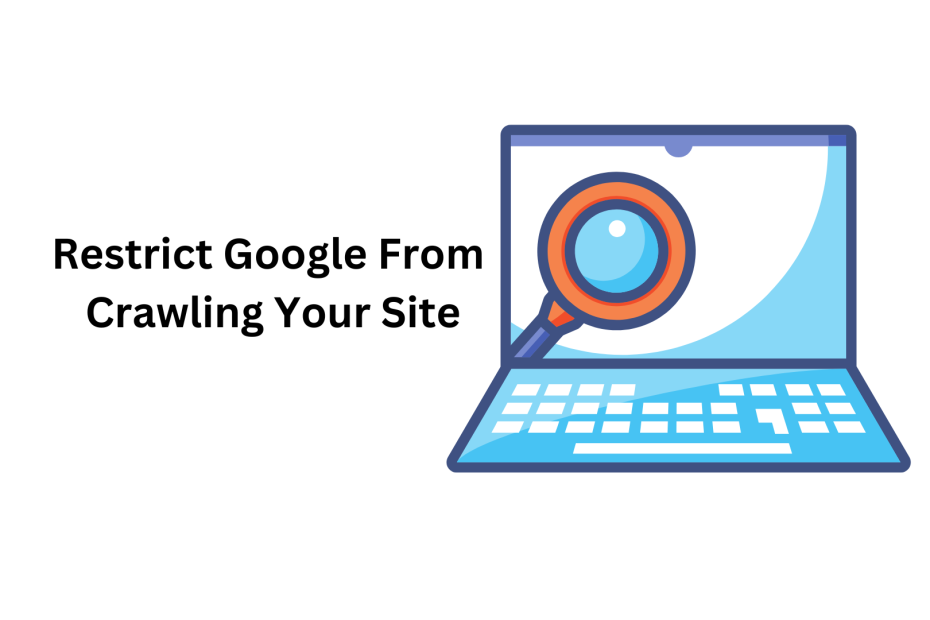Do you want to restrict Google from crawling your site?
Seeing the website on the top is everyone’s dream. Why wouldn’t it be? That’s why everyone works on their site. Even though a higher search ranking is what everyone wants, you still need to stop search engines from crawling your site sometimes.
Even though it feels strange at a glance but it is essential sometimes. Throughout the article, you will learn how and when to stop search engines from crawling your site.
Ways to Restrict Google From Crawling Your Site
You can stop Google from crawling your site in many ways. I will mention the most relevant ones below.
1. USE A “NOINDEX” METATAG
Noindex is a rule set- i.e., a signature that tells the page what action to take. This rule set uses a <meta> tag or HTTP responder header. Not all search engines support the tag, though Google does. It stops web pages from being crawled by specific search engines.
The noindex meta tag also usually needs to be set page by page. Once the tag is up and running, google’s bots will read it and drop the whole page from its search results, even if other sites are linked. It’s great to block particular pages or areas from being crawled.
Remember that the noindex metatag works only if the page isn’t already blocked by robot.txt. Since robot.txt is a command that blocks the whole site without blocking it from coming up in search results, using a metatag will be useless.
2. Use WordPress Restrict Google From Crawling Your Site
If your website is built on WordPress, you don’t have to be an IT professional to block Google from crawling your site. WordPress has a built-in tool that sets a robot’s meta-tag to noindex in the header of every page. This means the Google bots will automatically read and not crawl each tag.
Again, it depends on whether the search engine will or will not list your site despite the tool. This is because each search engine follows its rules and tags, and restrictions. However, usually, Google does honor the WordPress blocker.
3. Robots.txt
One of the ways to block Google bots from crawling your site is to use robots.txt. Robots.txt is a file added to your domain or your subdomain’s root to stop search engine crawlers or bots from indexing your website. You can use this file to block access for the search engine crawlers to your entire site or be specific about the particular pages you do not want Google to be crawling.
With this file, you can specify which search engines you want to block from crawling your side and which are okay. So, you could avoid Google while allowing others, such as Bing.
Remember that restricting access does not guarantee that the website or URLs will not appear in the search results.
4. Temporary Block
If you decide that your pages must be temporarily blocked from Google Search results, you can use Google Webmaster’s remove URLs tools. This hides your webpage from Google search Engine results for 90 days. You can also choose to clear the cache and snippets from Google Index.
5. Forced crawling
If Google is still showing your site despite using tags and other blocks, it’s probably because the bots haven’t crawled your site in a while. You can use the “fetch as Google Tool” to force bots to crawl the site, and then the bots will read the new restrictions and remove whatever you need.
